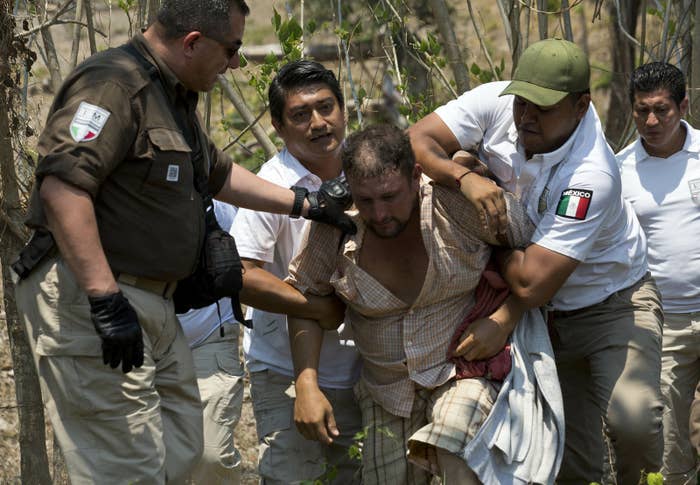
A surprise raid by Mexican authorities on a caravan of migrants traveling through the country this week marks a dramatic shift in the country's response to large groups of people from Central America crossing the border and raises questions over whether future caravans will be able to traverse the country during what is typically the annual migration peak.
Mexican immigration agents, along with federal police, raided a group of Central American migrants traveling on foot Monday in the southern state of Chiapas. Officials said the operation resulted in the detention of 371 men, women, and children — the largest single raid on a caravan since larger groups began traveling through the country last year, and a reversal from Mexico's previous approach.
Last fall, several large groups consisting mostly of Central Americans entered Mexico and were granted passage to continue their journey toward the US. While the first of the caravans faced a standoff at the Guatemala-Mexico border with police in riot gear lobbing tear gas, migrants were later offered humanitarian visas and the option to apply for asylum and a work permit. People were also given the ability to travel through Mexico without fear of being detained by immigration agents.
Alex Mensing, a member of the nonprofit Pueblo Sin Fronteras, which previously organized migrant caravans in Mexico but isn't involved in the latest one, said the country continues to detain and deport undocumented migrants, fueled in part by pressure from the US.
"This is definitely a shift in how they respond to caravans," Mensing told BuzzFeed News. "The government had always tried to stop the caravans, but never at this scale or so out in the open."
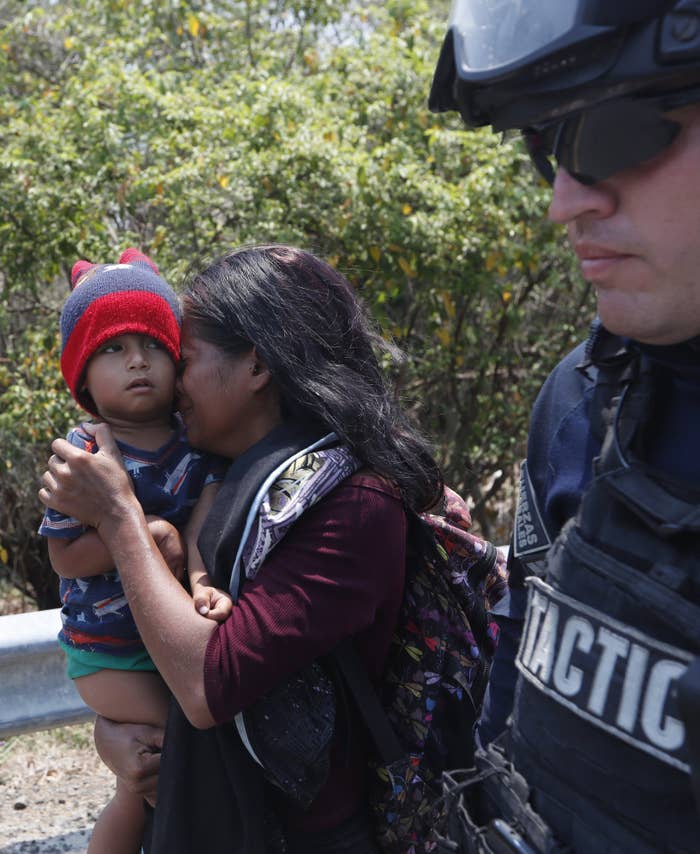
In the summer of 2014, following the success of a larger caravan, Mexican immigration agents raided a group of migrants. Then, in 2017, Mexican authorities stopped migrants in a caravan riding on top of "the Beast," a network of freight trains that migrants often use to traverse Mexico.
"We're seeing the violent representation of what has always been the plan," Mensing said. "It's not a change in policy but [rather] a change in behavior that's always been their policy."
Monday’s raid resulted in the breakup of the 3,000-person caravan, sending migrants scrambling into the nearby hills in search of hiding places. Images of immigration agents pulling children into vans from their crying mothers were released shortly after.
“They want to kill us in our country,” a crying woman said as agents and police forced her into a van.
Audio recorded by migrants traveling in the caravan and obtained by BuzzFeed News reveal a chaotic scene that resulted in many fleeing into the hills without food or water. Maciel, a woman who declined to use her full name and was among those who hid after the raid, said authorities aggressively apprehended women and children.
“They didn’t care if they had kids in their arms,” Maciel said.
Mexican immigration officials maintained that the raid was part of normal immigration enforcement and said that the country had deported 11,800 migrants so far this month.
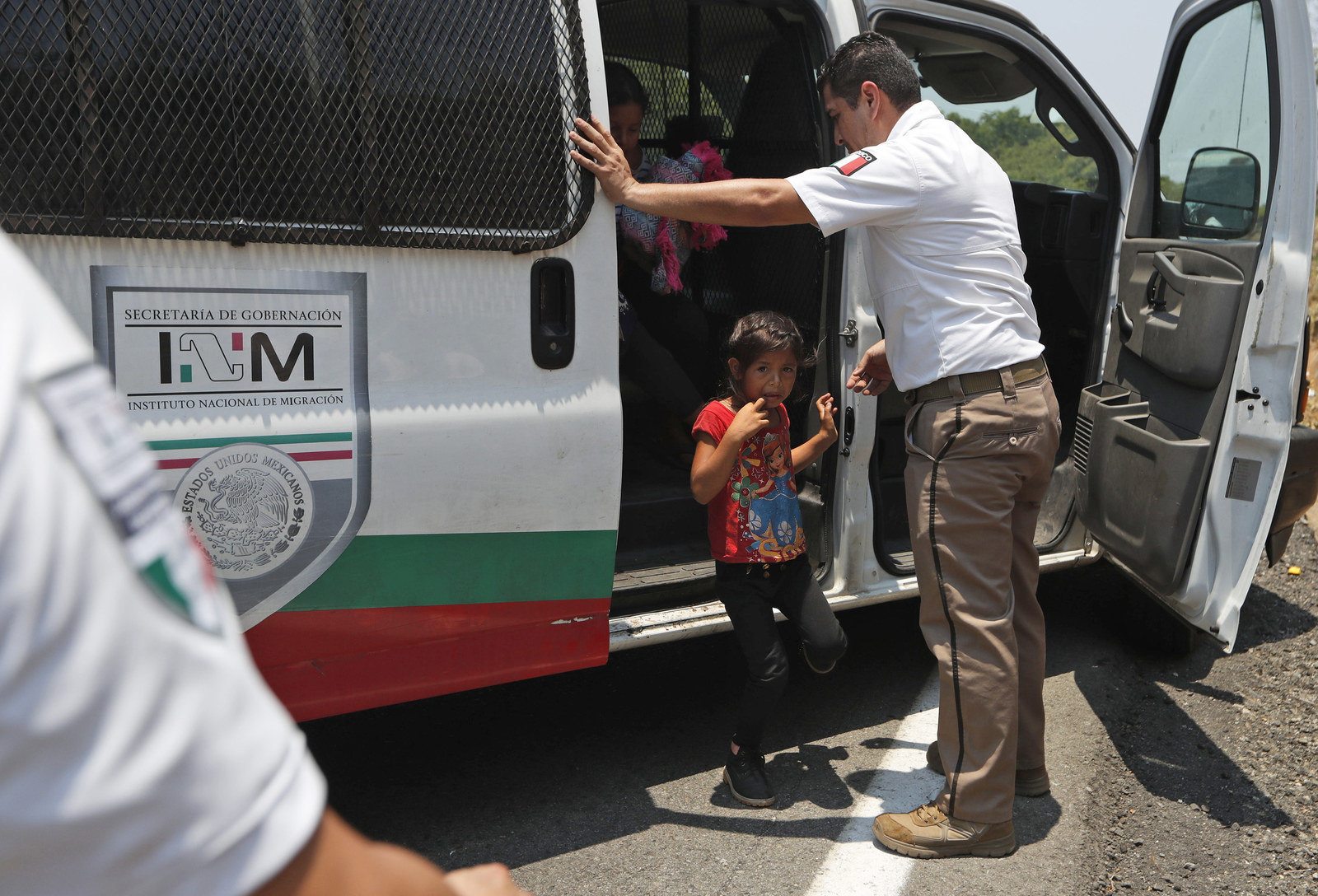
Although Monday's raid was the largest in some time, it isn't the only recent one Mexican authorities have launched. Last week, Mexican immigration agents and federal police detained 250 Central American migrants in Chiapas state, according to local news reports.
“They conducted a raid at the entrance to Mapastepec and detained mostly women and kids, since some men fled to the hill,” Heyman Vazquez Medina, a priest and director of the shelter No One Is a Foreigner, told La Jornada.
At a press conference Tuesday, Mexico’s foreign minister, Marcelo Ebrard, maintained that the country's immigration policies haven’t changed. Ebrard rejected the idea that Mexico conducted the raid over pressure from the US to stop migrants from reaching the border.
"We haven't had communication with the White House in recent days," Ebrard told reporters. "There is no official communication where Mexico is being told you have to do this and we say yes."
At the same time, Ebrard said that for the first time, Mexico was the United States' largest commercial partner, noting a 3.4% increase in exchange volume in January and February.
"Going against this relationship is very costly," the foreign minister said.
Ebrard had previously said in a tweet that "Mexico does not act on the basis of threats" following warnings from President Donald Trump in March that he would close the southern border if Mexico didn't stop "ALL illegal immigration."
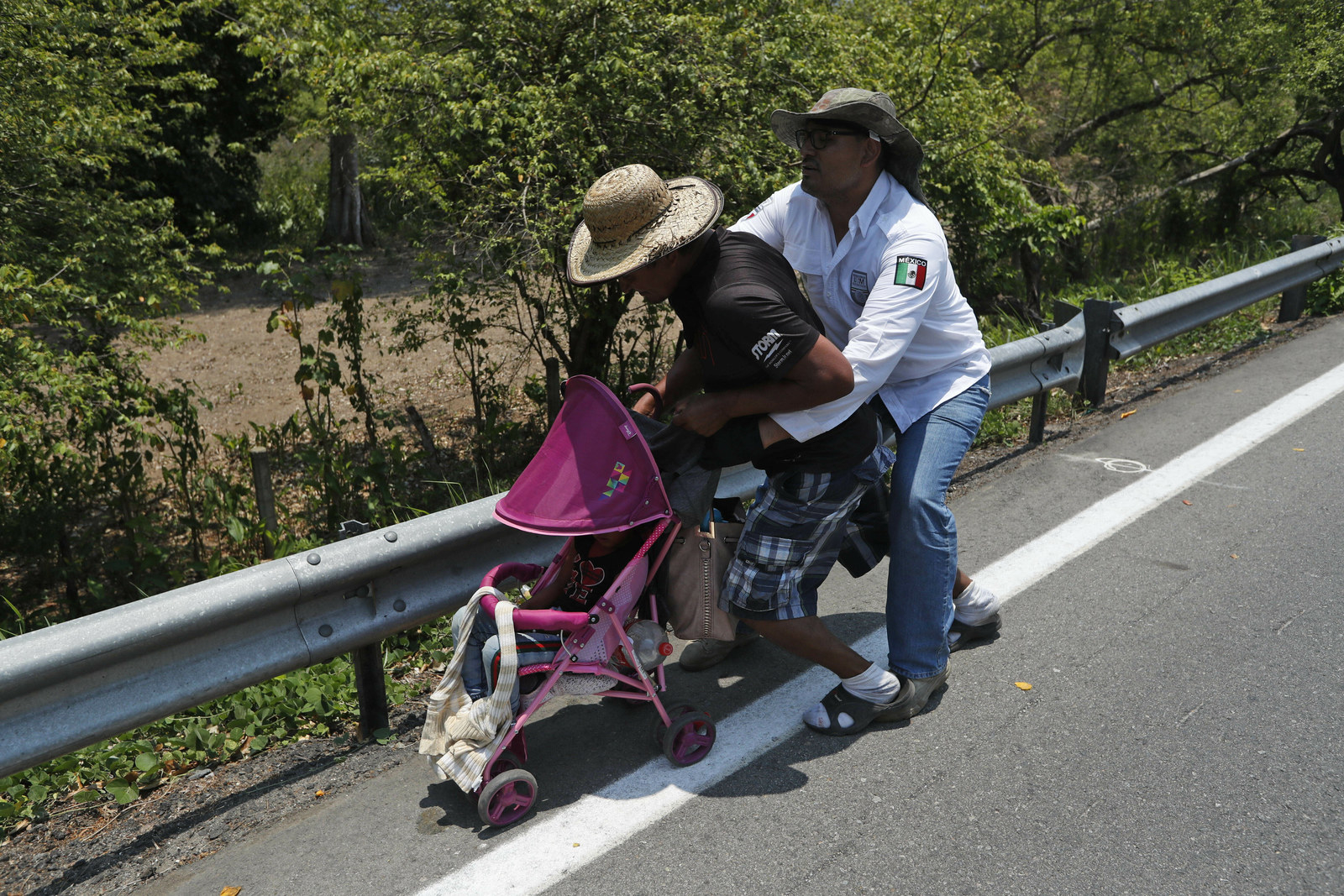
Mexico's new president, Andrés Manuel López Obrador, campaigned on the promise that he would not “do the dirty work of foreign governments” in stopping Central American migrants. Yet under his administration, Mexican officials have continued to block migrants from accessing official border crossings to ask for asylum. In the city of Piedras Negras, across from Eagle Pass, Texas, Mexican police and soldiers held a caravan of 1,600 Central Americans inside an old factory, allowing only a limited few with humanitarian visas to leave. All of this amid mounting pressure from the United States.
The most controversial policy the Mexican government has allowed the Trump administration to implement, despite calling it a unilateral decision, is the so-called Remain in Mexico initiative that forces asylum seekers to wait in Mexico while their immigration cases are heard in the US. A record-breaking backlog in the immigration-court system means that many of those returned — nearly 2,000, according to a Mexican official — will have to wait in Mexican border towns for months or years.
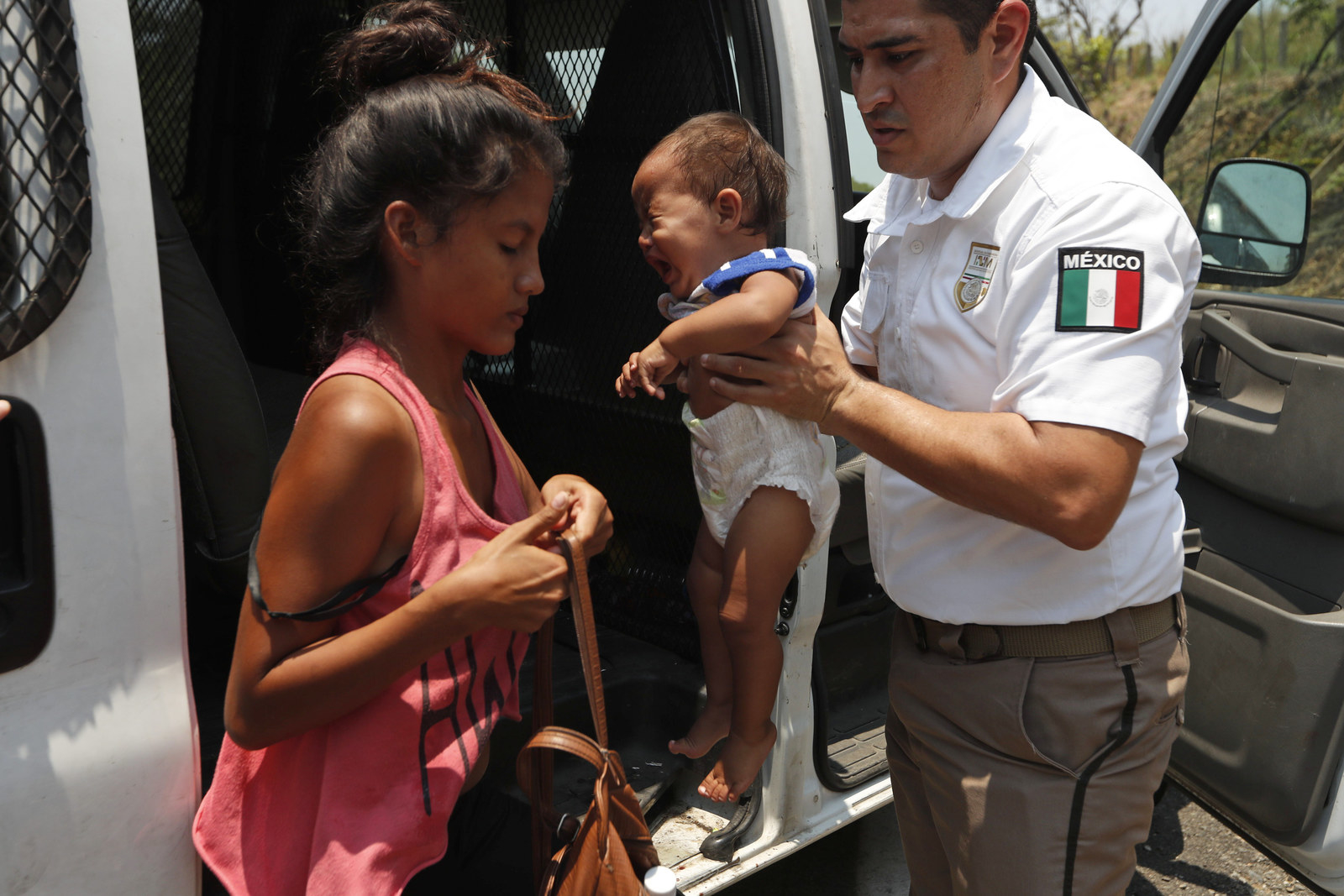
Mexico had been under pressure to stop migrants from reaching the US border even before Trump took office. One push came after unaccompanied Central American children arrived at the US border in unprecedented numbers during former president Barack Obama’s second term. In 2014, with US prodding and funding, Mexico created what is known as the Southern Border Program to stop Central Americans and send them home. In that program’s first year, Mexico doubled the number of people it caught and deported.
The record-breaking number of families crossing the US border in recent months has drawn the ire of Trump, who has responded with threats to close the border or cut off aid to Central American countries. Apprehensions at the border typically spike in the spring, and the numbers from March and April show no sign of retreating.
Already, US Border Patrol has said that captures for this fiscal year, which started in October, have soared to more than 418,000, surpassing last year's total of 404,142. The overall apprehension numbers are still historically low, but higher than in recent years.
Mensing of Pueblo Sin Fronteras doesn't believe that the raid will stop future caravans from forming but said it's possible if the Mexican government continues to disrupt the migrant groups.
"This could get worse; I don't see it toning down," Mensing said. "Trump is still saying Mexico isn't doing enough to stop migrants."
